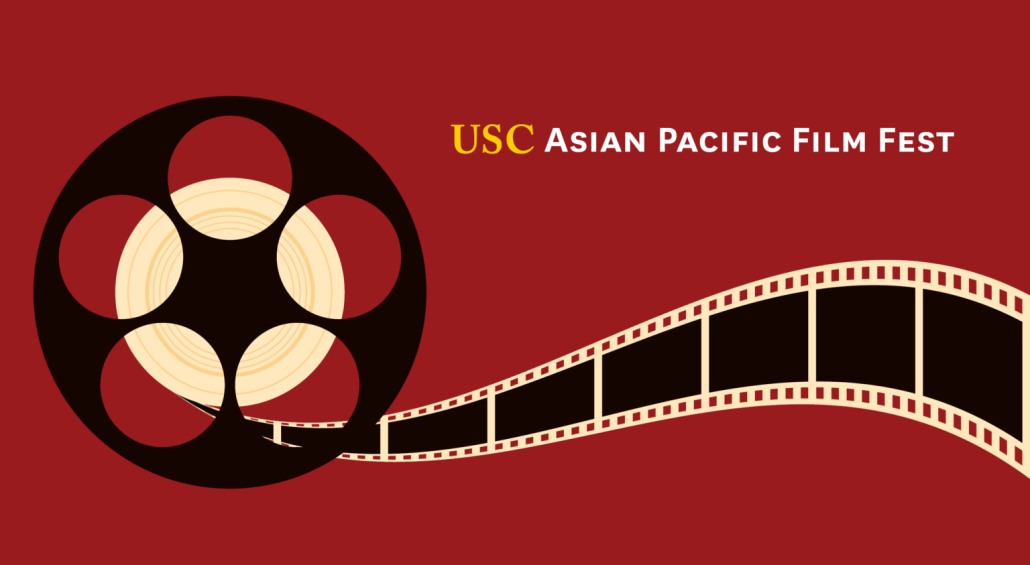Film festival celebrates the work of API Trojans

The Asian Pacific Alumni Association hosted the USC Asian Pacific Film Festival Saturday night, an event for students and alumni to highlight exemplary Asian Pacific Islander cinema and filmmaking from USC. Showcasing short films produced, written, directed by and/or starring API Trojans, the film festival allowed API USC community members and the entertainment industry to come together and celebrate the power of storytelling.
With screenings of a selection of eight short films, both live-action and animated, the 2022 APFF also included notable guests such as Amy Hill, an actress and stand-up comedian with more than 180 film and television credits. Known for her breakout performance as Yung-Hee “Grandma Kim” on the ABC sitcom “All-American Girl” and voiceover roles in “American Dad” and “Lilo & Stitch,” Hill served as one of three jurors for the film festival.
Hill spoke about her experiences playing characters of different Asian descents, including Korean and Filipina characters, and the way she approaches these roles to maintain accuracy and entertain the audience.
Hill, who often uses different accents in her performances, said “If the joke is the accent, I’m not into it. I don’t do jokes. I will do characters that have accents, but they have to be real people.”
Jaimie Woo, a recent master’s graduate of the USC Annenberg School for Communication and Journalism and another of the festival’s jurors, serves as the senior director of development at Culture House Media — a “Black, Brown and women-owned film and television production company and cultural consultancy.” Woo also serves as a diversity, equity and inclusion consultant and co-author of the New York Times bestseller “Yes She Can.” Woo produces various work promoting DEI in the workspace and emphasized its central focus in her production company.
“[The question on a set is]: How do you create an inclusive environment for all of your storytellers to come together and work in a collaborative way?” Woo said. “And also in the storytelling: Are we being accurate in our portrayals of certain populations? Are we giving in to stereotypes or bias?”
All of the films presented in the festival were intricately created with clear narrative threads and exciting visual design. Notable shorts included “SFGovTV Portraits: Sheriff Paul Miyamoto,”“The Best Friend,” and “Busan, 1999” — the latter winning the jurors’ award. “Busan, 1999” focuses on a Korean American woman’s return to her mother’s rustic home. They bathe and scrub each other, searching for reconnection and redemption after being driven apart.
Another short, titled “Imperfectly Perfect,” won the audience award through a voting process. In the film, Lucy takes care of Owen, a blind guitarist she has admired for years. When Owen is about to get his vision back, Lucy faces the struggle of whether to reveal her identity as a transgender woman to Owen.
Jon M. Chu, director of hits such as “In The Heights,” “Crazy Rich Asians” and “Now You See Me 2,” and one of the jurors for the competition, spoke about the revolutions in the entertainment industry today, one being the phenomenon of streaming platforms and the lesser emphasis on traditional box-office results.
While giving advice to the API filmmakers of the future, Chu spoke on the exciting changes he foresees being made by API artists in the world of cinema.
“It’s not easy being a filmmaker that has something new to say and something important to say in a world where the landscape is changing really quickly, and you don’t know where your job is coming from,” Chu said. “You don’t even know where the medium is ending up … There’s a whole new place that you are trailblazing and hopefully I will follow you and hopefully your stories will push me and we’ll do this all together.”
From buff animated frogs to tender moments of tragedy, the screened films at APFF demonstrated how content created by API Trojans can make an audience laugh, cry, smile or simply feel something special without coasting on stereotypical Asian tropes. Instead, the films touched on universal themes to capture the general audience and communicate that innate human feelings, such as loss or love, transcend culture and heritage. As Chu said, the future is bright for API filmmaking, and Trojans are at the forefront of that revolution.

